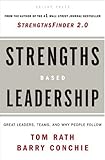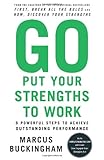A common job interview question is “what is your greatest weakness?” (Or some variation of it.)
A common response is to answer in terms of what you are bad at or tend to overdo (but often trying to give it a positive spin by making it seem the flip-side of a strength!).
That’s an unnecessary and unhelpful route to go with that question. The reason is that it misunderstands the nature of a weakness.
A weakness is not what you are bad at. A weakness is any activity that drains you. Or, in other words, a weakness is any activity that depletes you.
Understood in this light, it is not simply the most honest thing to give a straight answer, it’s also the most strategic because you don’t want to have a job that calls upon your weaknesses primarily (for you will be unable to excel and will end every day drained). What you want to do with your weaknesses is make them irrelevant by managing around them. Adjust the position so it doesn’t generally require you to do what weakens you, for example. Or find a partner who is strong where you are weak.
Given these things, here’s an example of a good answer to the question: “What is my greatest weakness? A weakness is an activity that drains you. Understood in this light, one of my greatest weaknesses is falling behind on email. If I let my email go for a few days, I feel like I’m under a pile of nagging, unfinished tasks, and it drains my energy. [Then, you go to how you have addressed the weakness and make it irrelevant:] As a result, I have a daily process for getting my inbox to zero, and I make sure not to skip more than a few days unless circumstances really call for it. I find that as long as I make it a priority to keep my in box processed regularly (which I have a system for), I don’t have to deal with the sense of being drained from a collection of unprocessed and unknown emails.”

